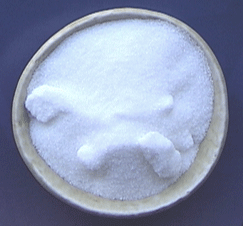27th May 2009
Peanuts in Your Pet’s Foods or Treats? Beware of Food Allergies!
 In humans, peanut allergy is the most common food-related cause of lethal anaphylaxis. Unlike many other food allergies, it often persists into adulthood. As well, peanuts are often used in dog treats. Well, you may say, peanuts can be allergens for humans, but can animals be allergic to them too? Yes, they can; read on…
In humans, peanut allergy is the most common food-related cause of lethal anaphylaxis. Unlike many other food allergies, it often persists into adulthood. As well, peanuts are often used in dog treats. Well, you may say, peanuts can be allergens for humans, but can animals be allergic to them too? Yes, they can; read on…
When pre-sensitized mice were injected with peanut extract, it was found that this caused dose-dependent shock by induction of complement C3a. The resulting shock was found to be independent of LPS (bacterial) contamination. C3a stimulates macrophages, basophils, and mast cells to produce platelet-activating factor and histamine (1). Another study found that peanut extract caused gene expression changes in the mesenteric lymph nodes of Brown Norway rats (2).
Many pet treats contain peanut butter because animals simply love the taste! However, be aware of this food’s allergenic potential. Mice aren’t the only animals that can be allergic to peanuts. At least one study (3) has shown that dogs can also be allergic to peanuts and other common human allergens. The allergenic response in dogs follows this hierarchy: peanut > tree nuts > wheat > soy > barley.
The probiotic Lactobacillus casei Shirota could not down-regulate the allergic response to peanuts in Brown Norway rats (4).
At Onesta Organics, we promise to resist the temptation to use peanuts, which are tasty, but potentially harmful, simply to increase palatibility of our pet food products.
1. Khodoun et al. J Allergy Clin Immunol 2009;123(2):352-3
2. deJonge et al. J Immunotoxicol 2008:5(4):385-94
3. Teuber et al. J Allergy Clin Immunol 2002;110(6):921-7
4. deJonge et al. Toxicology 2008;249(2-3):140-5
 In humans, peanut allergy is the most common food-related cause of lethal anaphylaxis. Unlike many other food allergies, it often persists into adulthood. As well, peanuts are often used in dog treats. Well, you may say, peanuts can be allergens for humans, but can animals be allergic to them too? Yes, they can; read on…
In humans, peanut allergy is the most common food-related cause of lethal anaphylaxis. Unlike many other food allergies, it often persists into adulthood. As well, peanuts are often used in dog treats. Well, you may say, peanuts can be allergens for humans, but can animals be allergic to them too? Yes, they can; read on…
When pre-sensitized mice were injected with peanut extract, it was found that this caused dose-dependent shock by induction of complement C3a. The resulting shock was found to be independent of LPS (bacterial) contamination. C3a stimulates macrophages, basophils, and mast cells to produce platelet-activating factor and histamine (1). Another study found that peanut extract caused gene expression changes in the mesenteric lymph nodes of Brown Norway rats (2).
Many pet treats contain peanut butter because animals simply love the taste! However, be aware of this food’s allergenic potential. Mice aren’t the only animals that can be allergic to peanuts. At least one study (3) has shown that dogs can also be allergic to peanuts and other common human allergens. The allergenic response in dogs follows this hierarchy: peanut > tree nuts > wheat > soy > barley.
The probiotic Lactobacillus casei Shirota could not down-regulate the allergic response to peanuts in Brown Norway rats (4).
At Onesta Organics, we promise to resist the temptation to use peanuts, which are tasty, but potentially harmful, simply to increase palatibility of our pet food products.
1. Khodoun et al. J Allergy Clin Immunol 2009;123(2):352-3
2. deJonge et al. J Immunotoxicol 2008:5(4):385-94
3. Teuber et al. J Allergy Clin Immunol 2002;110(6):921-7
4. deJonge et al. Toxicology 2008;249(2-3):140-5
 Posted by Heidi Junger, PhD under
Posted by Heidi Junger, PhD under  Home Remedies & News Bits, Our Ingredient Choices
Home Remedies & News Bits, Our Ingredient Choices  No Comments »
No Comments »

 Sometimes I am approached by pet owners who want to know why we don’t add honey to our pet food products. Many pet food companies still add sweeteners to their foods to make them more palatable to pets (not coincidentally this translates to greater sales). My answer is that this is not the way we are doing business and if the consequence is that some animals (or their owners) are not ‘crazy’ about one of our products, so be it. Although we are sorry to see a customer choose another company’s product, we can not with good conscience sell a product that we do not consider to be healthy for your pet.
Sometimes I am approached by pet owners who want to know why we don’t add honey to our pet food products. Many pet food companies still add sweeteners to their foods to make them more palatable to pets (not coincidentally this translates to greater sales). My answer is that this is not the way we are doing business and if the consequence is that some animals (or their owners) are not ‘crazy’ about one of our products, so be it. Although we are sorry to see a customer choose another company’s product, we can not with good conscience sell a product that we do not consider to be healthy for your pet. 